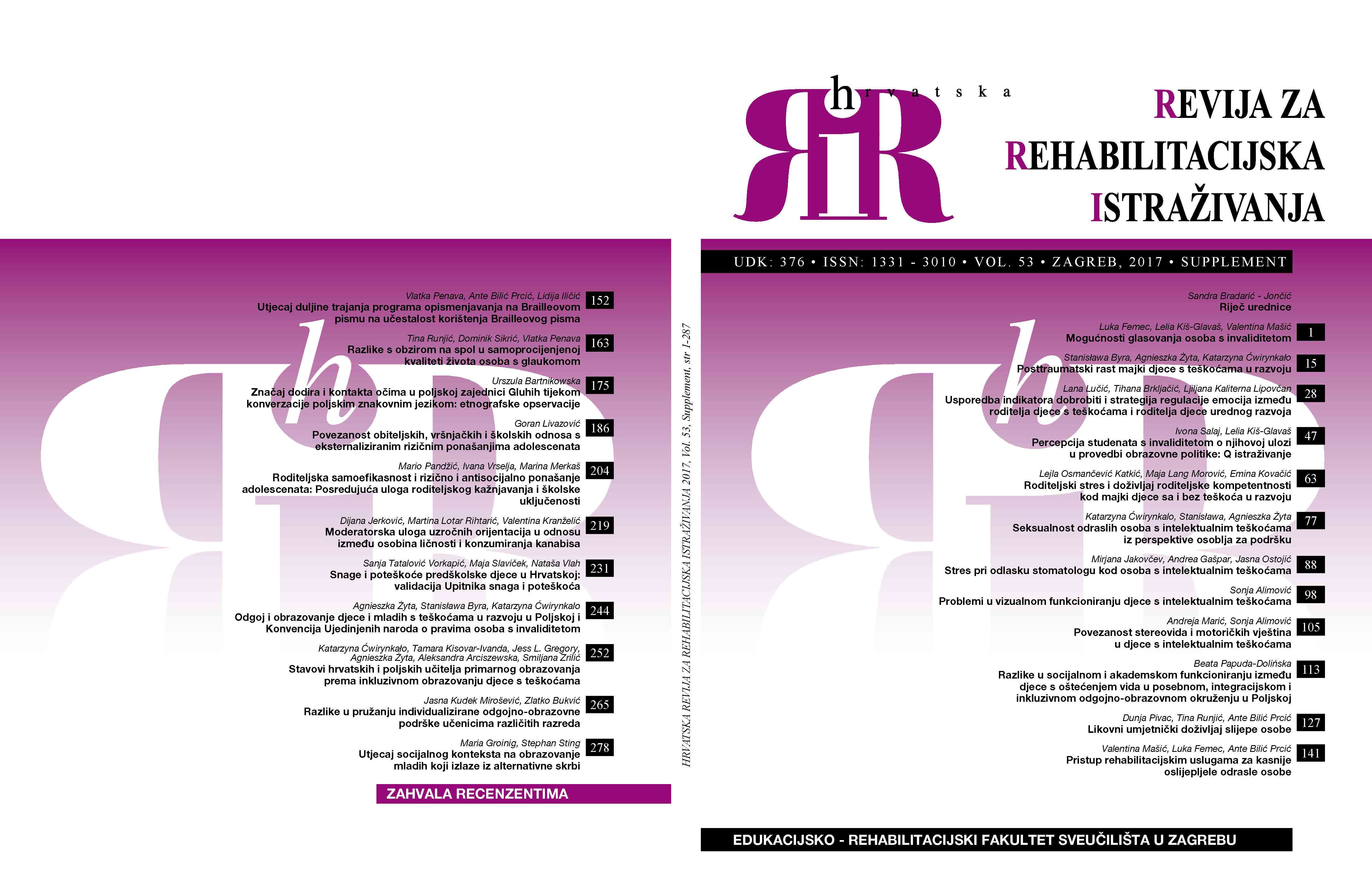Stres pri odlasku stomatologu kod osoba s intelektualnim teškoćama
Stress during dental treatment in people with intellectual disabilities
Author(s): Mirjana Jakovčev, Andrea Gašpar, Jelena OstojićSubject(s): Social Sciences, Education, Psychology
Published by: Sveučilište u Zagrebu, Edukacijsko-rehabilitacijski fakultet
Keywords: stress; dental care; persons with intellectual disabilities
Summary/Abstract: Dental treatments are often associated with stress because of unpleasant patient experiences such as pain and negative emotional reactions. People with intellectual disabilities experience such stress more intensively because of their different abilities of understanding and different levels of functioning. It is necessary to investigate the factors associated with stress in order to reduce the level of perceived stress for people with intellectual disabilities. Therefore, the aim of this study was to investigate the relationships of certain factors with perceived stress of people with intellectual disabilities during dental treatment. Based on the aim of the study, the following hypotheses were formulated: the level of stress in dental treatments is negatively correlated with the frequency of dental treatments; the level of stress in dental treatments is negatively correlated with the level of satisfaction with the dentist’s approach; and the level of stress in dental treatments is positively correlated with the degree of intellectual disability. The study involved 192 parents of people with intellectual disabilities. Parents filled out questionnaires designed for the purposes of this study in order to evaluate the level of stress experienced by their children, the parents’ level of satisfaction with the dentist’s approach and the frequency of visits to the dentist. The hypotheses were tested using Pearson correlation coefficients, and the results revealed a statistically significant correlation between satisfaction with the dentist’s approach and level of stress. Thus, perceived stress in dental treatments is negatively associated with satisfaction with the dentist’s approach. In other hypotheses, a correlation was not statistically significant, suggesting that data from this sample could not confirm that degree of intellectual disability or the frequency of visits to the dentist are associated with perceived stress. The results have practical implications for designing potential future educational programs in dental practice, and present a good starting point for further research on this subject.
Journal: Hrvatska revija za rehabilitacijska istrazivanja
- Issue Year: 53/2017
- Issue No: Supp.
- Page Range: 88-97
- Page Count: 10
- Language: English

